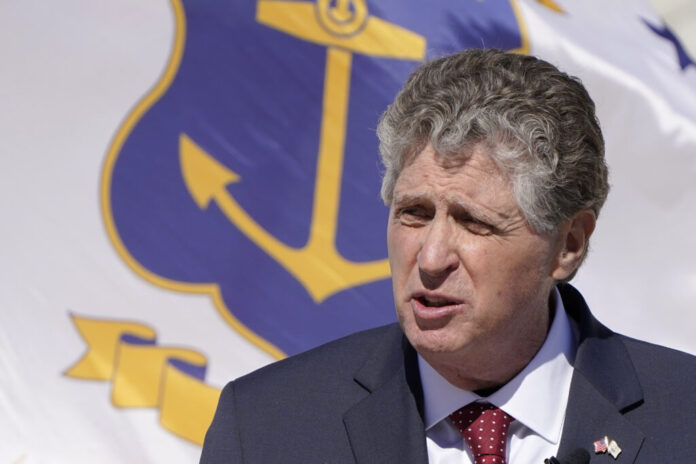
PROVIDENCE – After receiving reassurance from the state’s top legal adviser, Gov. Daniel J. McKee on Tuesday said he intends to sign a high-profile climate change bill headed to his desk.
McKee spokeswoman Andrea Palagi confirmed in an email Tuesday afternoon that the governor intends to sign the legislation. His decision comes after a requested response from the R.I. Office of the Attorney General on legal concerns. In an April 6 letter, R.I. Attorney General Peter F. Neronha urged McKee to support the “watershed” legislation and dismissed concerns over the citizen-suit provisions of the bill.
McKee in a March 30 letter to the chairs of each chamber’s environment committees expressed support for the goals of the bill, which updates 2014 greenhouse gas emissions targets with the ultimate goal of achieving net-zero emissions by 2050. However, he also cited “serious concern” with what he described as an “unduly broad” list of potential plaintiffs that could sue the state, leading to “expensive, protracted and vexatious litigation.” In the letter, McKee suggested allowing only the R.I. Attorney General to sue the state if it fails to meet its target emissions goals.
His comments echo concerns voiced by a number of business leaders. Lenette Forry-Menard, the lobbyist for the Northern Rhode Island Chamber of Commerce, in public testimony to lawmakers asked for the section to be removed from the bill, suggesting it would result in fines or penalties being passed on to businesses.
The Northern Rhode Island Chamber was among the 19 signatories on a statement issued Monday reiterating these and other concerns. Prominent business organizations, including the the heads of the Rhode Island Manufacturers Association, the Rhode Island Hospitality Association and the Associated Builders and Contractors of Rhode Island, also signed.
The groups backed McKee’s proposal to limit lawsuits to the attorney general to “provide some level of checks and balances on the process” and “avoid wasting precious revenue resources in numerous lawsuits.”
Neronha in his letter pointed out that other environmental laws on the books allow for lawsuits but that there are “practical and procedural safeguards that prevent specious litigation from advancing in court.”
Environmental advocates have also backed the bill, including the need for “teeth” via the court-enforcement provision. In a March 31 letter to McKee signed by eight environmental groups, including the Audubon Society of Rhode Island and The Environmental Council of Rhode Island, they pointed to similarly enforceable emissions targets that Massachusetts and Connecticut have had for more than a decade.
“The success of these programs can give us the confidence to proceed in Rhode Island,” the letter stated.
Providence Mayor Jorge O. Elorza in a statement on Tuesday also threw his weight behind the proposal, urging McKee to sign the bill “unchanged.”
The landmark environmental bill received final passage in both chambers of the R.I. General Assembly Tuesday afternoon. The largely procedural vote – the bill already passed in the Senate and House of Representatives but each must sign the other’s legislation as well – leaves McKee with final decision power.
The legislation also calls for the R.I. Executive Climate Change Coordinating Council – established in 2014 – to offer an updated plan every five years outlining “strategies, programs and actions” on how to meet incremental reductions in emissions targets, with opportunity for public comment.
(Updated to include results of the bill’s final passage by the R.I. House and Senate.)
Nancy Lavin is a PBN staff writer. You may reach her at Lavin@PBN.com.












